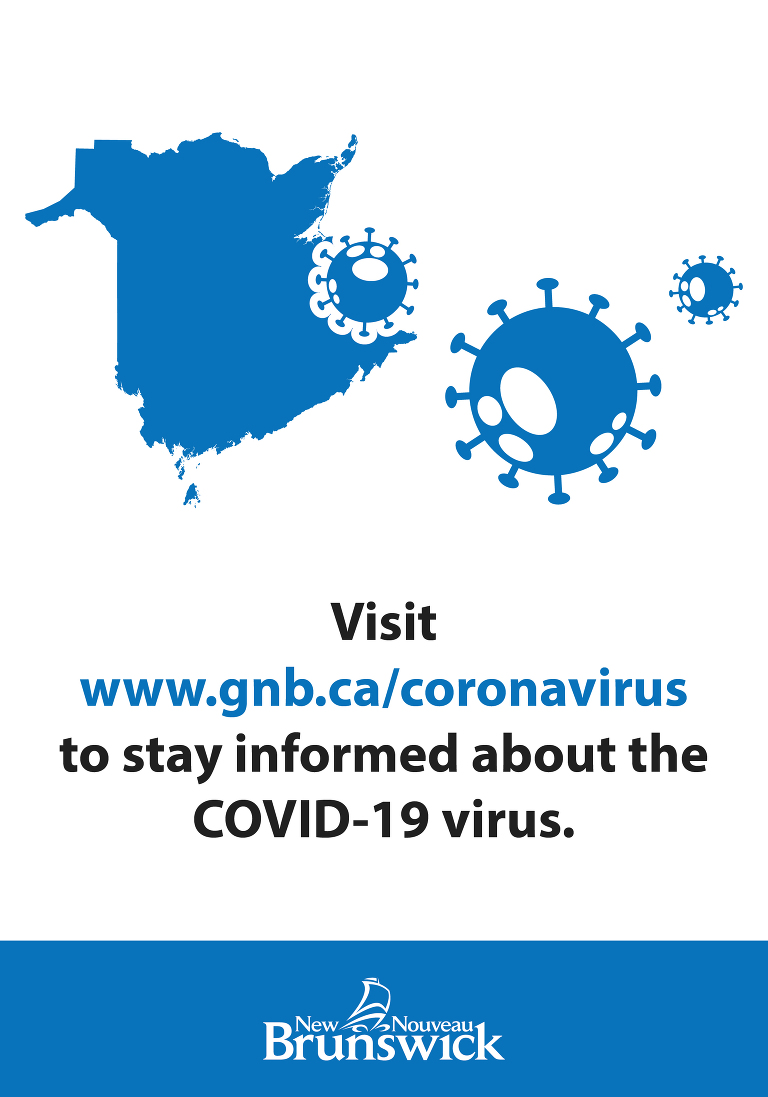.png) This post is presented by the Office of the Chief Medical Officer of Health (Public Health)
This post is presented by the Office of the Chief Medical Officer of Health (Public Health)
To get the flu shot or not , that is the question.
No matter where you turn, you can find any number of theories and opinions about flu shots. From their importance to their effectiveness to their safety, you can find contradicting advice in just about any corner you look.
The flu vaccine is the most effective way to reduce your risk of developing serious complications from seasonal flu. All New Brunswickers, especially those who are at a higher risk of becoming seriously ill from influenza, should get their yearly flu shot. Everyone has a role to play in protecting themselves and those around them.
We want New Brunswickers to have accurate information to make the best health care decisions for their families. Here are our top seven flu facts:
Flu Fact #1: The flu can send you or your family member to the hospital.
The flu should not be underestimated. The flu can be serious and results in hospitalizations and death each year. The people at greatest risk of getting sick or dying are:
• young children
• pregnant women
• seniors,
• people with underlying health problems.
Healthy adults play an important role in reducing flu in our community as it is very contagious and spreads quickly and easily. You can pass the flu on to others before you even know you are sick.
Flu Fact #2 Yes, you need to get your flu shot every year.
There isn’t just one strain of the flu. Flu vaccines aren’t 100 per cent effective, in part because the vaccine is developed based on the most likely strain(s) to be circulating in your area, and sometimes this prediction isn’t perfect. Each year the strain of the flu changes and a new vaccine is developed each flu season. That’s why you need to get vaccinated each year.
Flu Fact #3: No, you can’t get the flu from the flu shot.
You can’t get the flu from the flu vaccine because it doesn’t contain a live virus. If you were vaccinated, and then came down with a case of the influenza, here’s what may have happened:
- Maybe the vaccine was not a match for the strain of flu you developed, or maybe your immune response did not offer you full protection.
- Maybe your body’s response to the vaccine was mild flu-like symptoms. This is common but it’s not the actual flu. Remember, flu tends to be long-lasting and severe. A fever or cough that results from the flu vaccine won’t last more than a day or so.
- Maybe you didn’t get vaccinated early enough. You’re not fully protected until two weeks after you receive the vaccine, so it’s possible to catch the flu in the meantime.
Flu Fact #4: It’s not too early or too late.
While most people are encouraged to get vaccinated as soon as the vaccine is available, if you forget until after influenza is circulating, it’s not too late. The vaccine will still protect you for the remainder of the flu season. However, keep in mind that the delay between vaccination and immunity runs about 2 weeks. So, if people around you are sick, and you’re vaccinated, you could still get sick because of exposure before the vaccine was fully effective. That’s why it is encouraged to get your flu shot earlier in the season.
Flu Fact #5: You may be eligible to receive the flu vaccine for free.
Seasonal influenza vaccine is available free of charge to the following New Brunswick residents by many different immunization providers through a variety of programs:
Adults and children with chronic health conditions (click here for full list)
People of any age who are residents of nursing homes and other chronic care facilities.
People ≥65 years of age.
Healthy children 6 months to 18 years of age.
All pregnant women.
Aboriginal people.
Those in direct contact with poultry infected with avian influenza during culling operations.
People capable of transmitting influenza to those at high risk:
- household contacts (adults and children) of individuals at high risk of influenza-related complications (whether the individual at high risk has been immunized);
- household contacts of infants <6 months of age;
- members of a household expecting a newborn during the influenza season;
- household contacts of children 6 months to 59 months;
Health care workers, including staff of licensed long-term care facilities (LTCF), are capable of transmitting influenza to those at high risk. Influenza vaccine is provided free of charge to health care workers by the employer who is responsible for the cost of vaccine and administration.
All healthy persons aged 19 to 64 years who do not have contraindications to influenza vaccine are also encouraged to receive influenza vaccine, though it is not publicly funded.
Flu Fact #6: There are some people who should not receive the vaccine.
There are certain people who should not get the vaccine. If you fit into any of the categories below we recommend you talk to your healthcare professional before getting your flu shot this year.
You should avoid the flu shot if:
- you previously had a life-threatening reaction to a previous dose of influenza vaccine, or any component (with the exception of egg), of the vaccine or its container;
- you developed Guillain-Barre Syndrome (GBS) within six weeks of getting any influenza vaccine. (GBS is a rare condition that can result in weakness and paralysis of the body’s muscles.)
- Children younger than six months should not get the influenza vaccine because it is not licensed and not known to be effective for this age group.
NOTE -Egg allergy is no longer considered a reason not to get the flu vaccine.
Flu Fact #7: The flu (influenza), is not the same as the stomach flu (gastrointestinal).
You read it here, the flu shot protects against influenza, which isn’t the same thing as the stomach flu (gastroenteritis). The stomach flu (gastroenteritis) is an infection caused by a variety of viruses, including rotaviruses and noroviruses. Although it is often called the stomach flu, gastroenteritis is not caused by influenza viruses. That’s why it is so important during the flu season to ensure proper hygiene like washing your hands, using a facial tissue and coughing into your elbow.
Take it from us, the flu shot is a good thing. For more information or to have your specific flu questions answered, contact your healthcare provider, Tele-Care 811, local Public Health office or visit www.gnb.ca/flu.
You might also like…



















